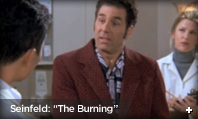Post
Why Medical School Should Be Free
There’s a lot of really great doctors out there, but unfortunately, there’s also some bad ones. That’s a problem we don’t need to have, and I think it’s caused by some problems with the rules about becoming a doctor.
1. The money
Becoming a doctor is expensive. I’m about halfway through and I’m nearly $100,000 in debt. Many “problem” doctors have improper expectations about their value and compensation. Part of this is due to the high cost of medical education, but another cause is this sense that they’re owed more because of the relative difficulty and sacrificed profitability during the long training period.
However, the real value of being a doctor is in the profession itself. Simply put, those who don’t find that sufficient shouldn’t be doctors. It’s not about discouraging people, but if the primary focus is financial, there are probably easier ways of making money.
How do you select for this? Make medical education free and then fix doctors’ pay at a more reasonable rate. People don’t become soldiers for the money, they do it because they believe in their mission. If you take the money out of the equation for becoming a doctor (both the mountain of debt and the tantalizing prospect of success), you get a volunteer army.
2. The education
Another problem, both contributing and a result of #1 is the focus of medical education on intelligence, and specifically the measurement and valuation of that quality through standardized tests. Too many potentially great doctors are excluded based on test scores, and just as many potentially bad doctors are funneled in for the same reasons. This pattern continues once in medical school, where a test (unceremoniously called “Step 1”) now helps determine your range of specialties.

Being smart isn’t the most important part of being a good physician, being empathetic, genuinely caring about and able to connect to people is. What’s the point of knowing the molecular underpinnings of a condition if a patient’s never going to trust you enough to tell you what’s really going on?

My experience at UCLA has convinced me that there’s been alot of improvement in this area. We take a course called “Doctoring” that exposes us to different people and situations (through standardized patients) in an environment where we can get guidance from our peers and teachers as we learn our patient’s history, deliver (sometimes bad) news, and provide counseling. It’s an incredible learning experience and I’m sure it’s made me a more caring and compassionate person.
It upsets me when I hear a story about an asshole doctor because they clearly should’ve done something else, and there’s probably someone out there who would’ve made a much better doctor but was turned down because they couldn’t afford it or forgot some utterly useless fact that they could Google on their phone in 10 seconds.
On a side note, have you ever had any bad experiences with a physician? Let me know and I’ll try not to do that.
Archive
-
260.
The Ethics of Practicing Procedures on the Nearly Dead
The report from the field was not promising by any stretch, extensive trauma, and perhaps most importantly unknown “downtime” (referencing the period where the patient received no basic care like...
-
260.
The Ethics of Teaching Hospitals
I can’t imagine what the patient was thinking. Seeing my trembling hands approaching the lacerations on his face with a sharp needle. I tried to reassure him that I knew what I was doing, but the...
-
260.
Conscious Conversation: Behavioral Science
Dr. Eran Zaidel is a professor of Behavioral Neuroscience and faculty member at the Brain Research Institute at UCLA. His work focuses on hemispheric specialization and interhemispheric interaction...
-
260.
Progress Report
Two years down, I’m still going. The next two years are my clinical rotations, the actual hands-on training. It’s a scary prospect, responsibilities and such; but it’s equally exciting, after...
-
260.
Why Medical School Should Be Free
There’s a lot of really great doctors out there, but unfortunately, there’s also some bad ones. That’s a problem we don’t need to have, and I think it’s caused by some problems with the...
-
260.
The Cerebellum: a model for learning in the brain
I know, it’s been a while. Busy is no excuse though, as it is becoming clear that writing for erraticwisdom was an important part of exercising certain parts of my brain that I have neglected...
-
260.
Conscious Conversation: Philosophy
Daniel Black, author of Erectlocution, was kind enough to chat with me one day and we had a great discussion – have a listen.
-
260.
The Stuff in Between
I’m actually almost normal when not agonizing over robot production details, and quite a bit has happened since I last wrote an update. First, I’ve finally graduated. I had a bit of a...



Comments
Add a Comment
Phrase modifiers:
_emphasis_
*strong*
__italic__
**bold**
??citation??
-
deleted text-@code@Block modifiers:
bq. Blockquote
p. Paragraph
Links:
"linktext":http://example.com